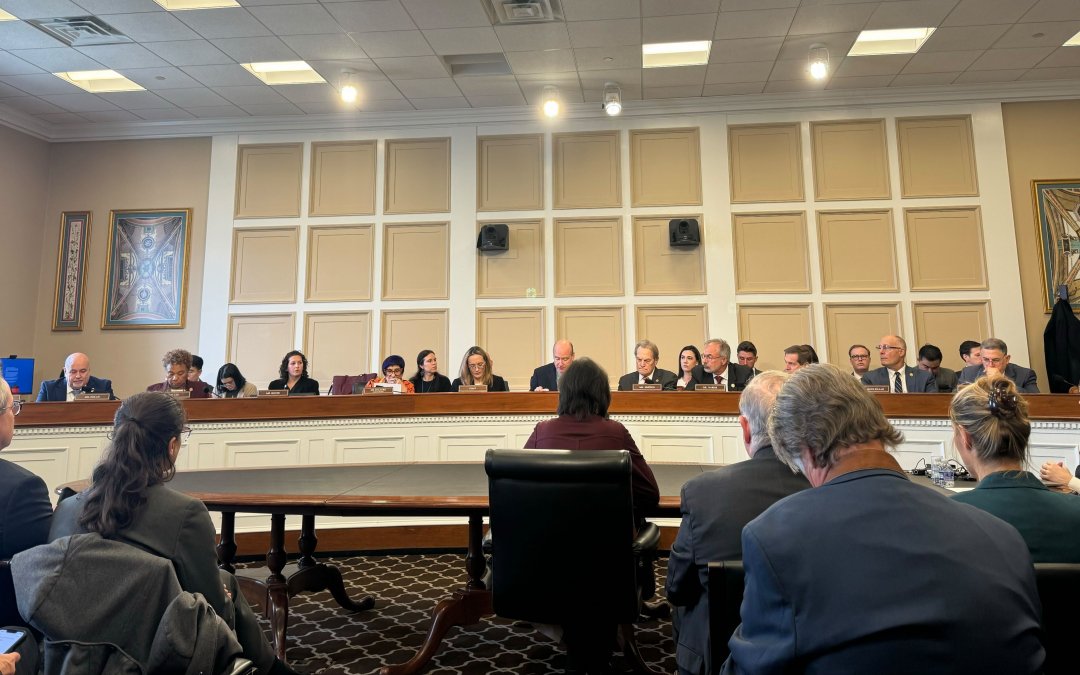WASHINGTON – Lawmakers sparred with Dr. Monica Bertagnolli, Director of the National Institutes of Health (NIH), over vaccines and the future of the agency under President-Elect Donald Trump at a House Appropriations Committee Hearing on Tuesday.
The hearing was held just days after Trump tapped former presidential candidate Robert F. Kennedy Jr. to lead the Department of Health and Human Services, which oversees the NIH. Kennedy, a vocal vaccine skeptic, has called for an overhaul of HHS’s agencies, claiming that federal agencies are allied with food and drug companies that are worsening the health of Americans. Rep. Andy Harris (R-Md.) said he had spoken to Kennedy about his plans for the department.
“America’s getting sicker and not healthier,” Harris said. “There’s a reason why Mr. Kennedy and Mr. Musk are going to have a study in this, because I think they realize that we have to make America healthy again.”
Harris pressed Bertagnolli on the NIH’s study of nutrition-related diseases in the U.S. He cited a phone call to the NIH’s Office of Nutrition Research during which he claims his staff was informed that the agency does not have a scientist specializing in nutrition-related diseases.
“Obesity, hypertension, diabetes-these are the drivers of huge costs in our Medicare program,” Harris said. “Do you really not have a scientist at NIH who specializes in studying diet-related disease?”
“That perception could not possibly be more wrong,” Bertagnolli said in response. “I can’t think of a single institute or center across NIH that doesn’t, in some way or form, have research that touches on nutrition.”
Later in the hearing, Harris questioned the NIH’s biological research involving transgender individuals, asking Bertagnolli whether the agency would report a transgender woman as a biological male or female.
“We assign them according to the biological research question we are trying to answer,” Bertagnolli said. “We’re not going to say they’re a man or they’re a woman. We are going to base it off the science and the scientific question we’re trying to answer.”
“And that’s why nobody trusts the NIH,” Harris responded.
The Appropriations Committee, which oversees federal discretionary funding, discussed the President’s Budget for Fiscal Year 2025. The budget requests a $1.2 billion increase in federal funding for the NIH, which plans to boost funding for women’s health and vaccine development.
Rep. Lois Frankel (D-Fla.) expressed concern about anti-vaccine rhetoric among members of the incoming administration, seemingly critical of Kennedy, and asked Bertagnolli about the risks of not vaccinating children in the U.S.
“If all vaccination suddenly stops, we will see much more severe illness and death in children,” Bertagnolli said. “There are other places in the world that have this, that do not have widespread vaccination of their populations, and look at the tragedies that we see there. I think it would be very disturbing.”
Bertagnolli was also pressed by Rep. Andrew Clyde (R-Ga.) on a “deeply concerning” 2023 investigation into NIH officials’ use of personal email accounts to evade the Freedom of Information Act.
Bertagnolli refused to comment on ongoing personnel matters within the agency, but Clyde persisted. “Congress is an investigative body. We are doing an investigation here,” he said. When I ask you a question, I need a response.”
Bertagnolli promised that she would look into the matter and that the NIH will abide by all legal requirements, including preserving records and being transparent with the incoming Trump administration.
She also cited the NIH’s study of gene therapies for rare diseases, which the for-profit sector is unlikely to invest in, as a way to make health care more accessible. Once the NIH develops effective treatments, the agency can sell the therapies to the private sector under strict regulations to keep therapies affordable for Americans.
“We have a researcher who is doing in-utero gene therapies. Wouldn’t that be wonderful if we could test a baby even before it’s born, deliver a treatment and eliminate suffering from things like this?” Bertagnolli said. “NIH needs to take even these very rare diseases under our wing and really champion the gene therapies that can be ideally curative for these individuals.”


